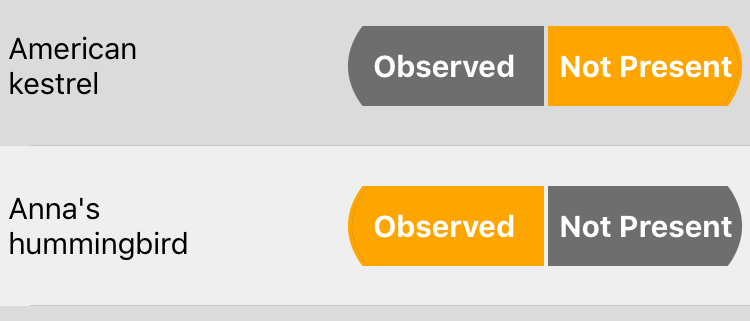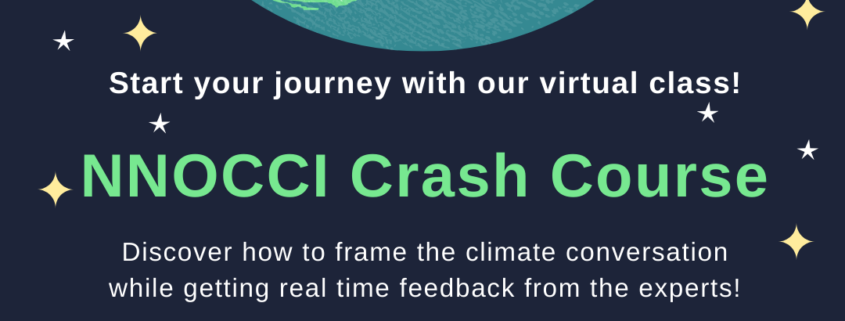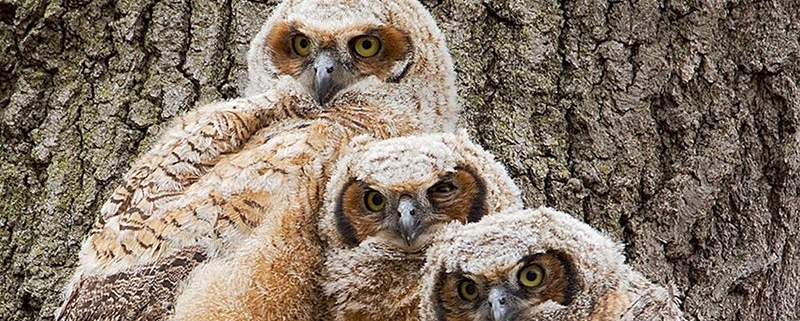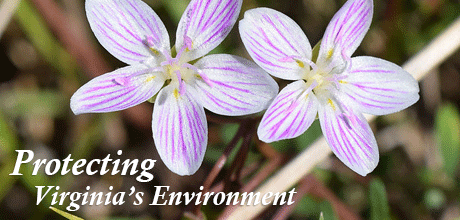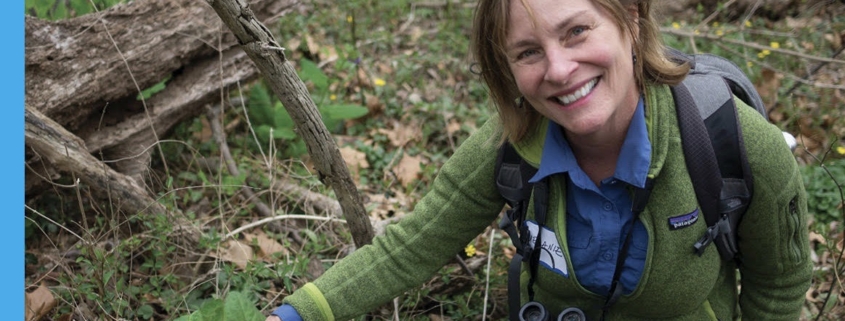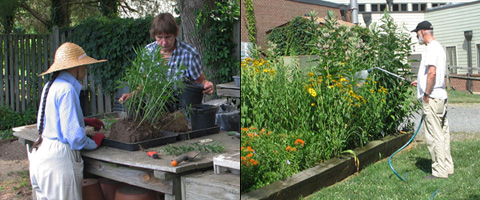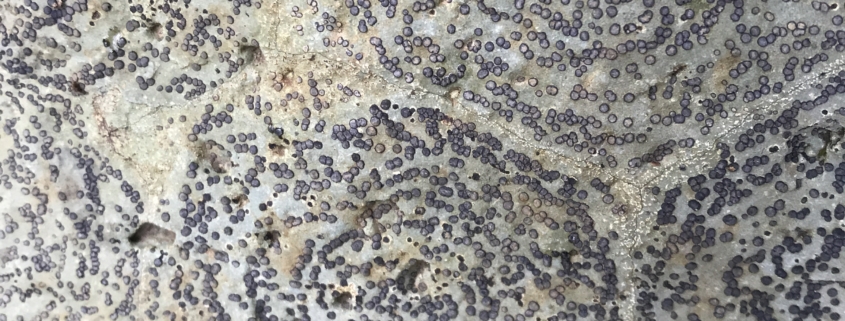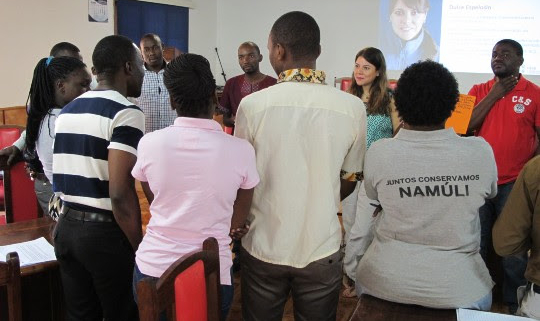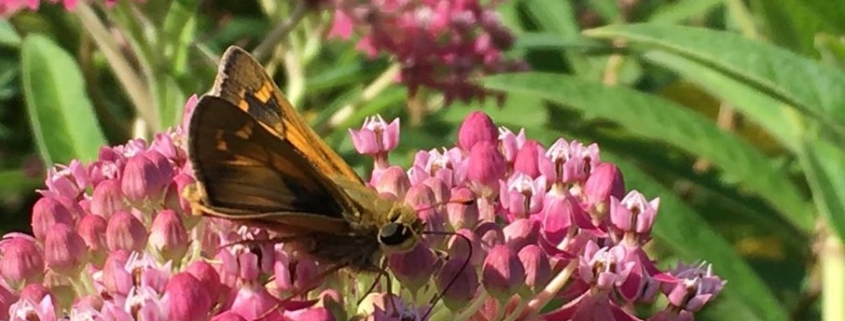The National Network for Ocean and Climate Change Interpretation (NNOCCI) is launching a new training opportunity: The NNOCCI Crash Course!
This is a 6-week, 25-hour, fee-based online course for those interested in gaining strategic framing skills.
NNOCCI is a partnership between climate scientists and informal science educators who have public trust and large audiences, and who are dedicated to using our platforms to have productive conversations about climate action.
We operate as a supportive community of practice using and teaching evidence-based tools to inspire hope and action. Together, we can change the national conversation around climate change to be more positive, productive and solutions-focused.
In the Crash Course, participants will learn basic framing elements including why framing matters, values, metaphors, and solutions. These framing techniques are all based on rigorous social science and have been extensively tested across the United States. Participants will create a final project to demonstrate their framing skills and practice critiquing communications with the framing skill rubric. This course is ideal for those who have an interest in learning more about strategic framing to incorporate these techniques into their personal or professional communications. For more information on NNOCCI Training Offerings, visit www.climateinterpreter.org/training.
Benefits of the NNOCCI Crash Course
1. Gain skills to engage others on climate change. Training includes a series of online video modules, facilitated webinars, and practice assignments to provide a comprehensive introduction to strategic framing, an overview of NNOCCI tools and messaging, and access to experienced trainers to support you in crafting impactful climate messages.
2. Accessible from anywhere. This online, 6-week, 25-hour module provides a comprehensive overview of strategic framing tools from the comfort of your home/office.
3. Network with like-minded individuals across the country. Expand your professional network and explore the challenges, opportunities, and best practices of climate communication within a supportive community of practice.
4. Join the NNOCCI Network. NNOCCI has built and fostered a community of practice to help scientists and science educators share best practices and challenges of communicating climate research. NNOCCI’s reach is broad, with a network of more than 440 individual members from 184 informal science learning centers across 38 states.
Course Offerings:
- Summer Course taking place the weeks of July 12th through August 16th, 2020
- Fall Course taking place the weeks of October 11th through November 15th, 2020
Course Sizes: Courses will range in size from 20 to 40 participants. For courses with 30+ participants, the cohorts may be divided into smaller groups.
Additional Program Details: The cost of the course is $249/person with additional discounts for attendees joining in groups of 5 (5%), 10 (10%) and 20 (20%) people.
How to Apply: Applications are live. Please reach out to [email protected] with questions in the meantime.
More info and FAQs: https://climateinterpreter.org/content/nnoccis-new-online-crash-course
Registration: https://docs.google.com/forms/d/e/1FAIpQLSeS8r2pIoO0igoey_T6awUer6xuARSv24mQd3gXRmSSBpgavw/viewform


